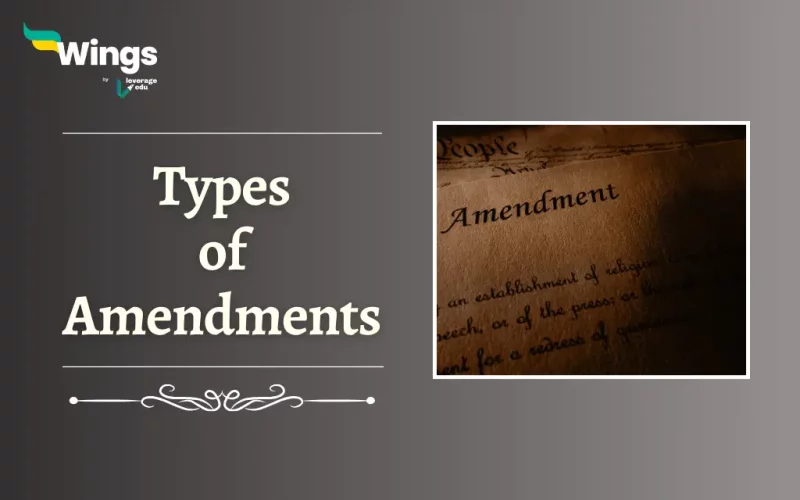Article 368 outlines two Types of Amendments to the Indian Constitution: one through a special majority of Parliament and another via approval by half of the States with a simple majority. However, certain other Articles allow for the Amendment of specific provisions of the Indian Constitution through a simple majority of Parliament, similar to the regular legislative process. Additionally, it is important to note that these Amendments are not considered amendments to the Indian Constitution as per the guidelines of Article 368.
How many Types of Amendments in the Indian Constitution?
Furthermore, Amendments to the Indian Constitution can be done in 3 ways:
By Simple Majority of the Parliament
Several provisions within the Constitution are subject to Amendment by a basic majority vote in both Houses of Parliament, falling outside Article 368. These provisions include:
- Admission or establishment of new states.
- Formation of new states and alteration of areas, boundaries or names of existing states.
- Abolition or creation of legislative councils in states.
- Second Schedule- emoluments, allowances, privileges and so on of the president, the governors, the Speakers, judges, etc.
- Quorum in Parliament.
- Salaries and allowances of the members of Parliament.
- Rules of procedure in Parliament.
- Privileges of the Parliament, its members and its committees.
- Use of the English language in Parliament.
- Number of puisne judges in the Supreme Court.
- Conferment of more jurisdiction on the Supreme Court.
- Use of official language.
- Citizenship- acquisition and termination.
- Elections to Parliament and state legislatures.
- Delimitation of constituencies.
- Union territories.
- Fifth Schedule- administration of scheduled areas and scheduled tribes.
- Sixth Schedule- administration of tribal areas.
Also Read: How Many Schedules are there in the Indian Constitution?
By a Special Majority of the Parliament
The majority of the provisions in the Indian Constitution need to be amended by a special majority of the Parliament.
- It is a majority of the total membership of each House and a majority of two-thirds of the members of each House present and voting.
- The expression ‘total membership’ means the total number of members comprising the House irrespective of fact whether there are vacancies or absentees.
- Notably, the special majority is required only for voting at the third reading stage of the bill. However, by way of abundant caution, the requirement for the special majority has been provided for in the rules of the Houses with respect to all the effective stages of the bill.
- The provisions which can be amended in this way include:
- (i) Fundamental Rights
- (ii) Directive Principles of State Policy
- (iii) All other provisions which are not covered by the first and third categories.
Also Read: What is Citizenship Amendment Act?
By Special Majority of the Parliament and the Consent of States
Those provisions of the Indian Constitution which are related to the Federal structure of the polity can be amended by a special majority of the Parliament and also with the consent of half of the State legislatures by a simple majority.
- If one or some or all the remaining States take no action on the bill, it does not matter.
- The moment half of the States give their consent, the formality is completed.
- Furthermore, there is no time limit within which the States should give their consent to the Bill.
- The following provisions can be amended in this way:
- 1. Election of the President and its manner.
- 2. Extent of the executive power of the Union and the states.
- 3. Supreme Court and high courts.
- 4. Distribution of legislative powers between the Union and the states.
- 5. Goods and Services Tax Council.
- 6. Any of the lists in the Seventh Schedule.
- 7. Representation of states in Parliament.
- 8. Power of Parliament to amend the Constitution and its procedure (Article 368 itself).
Related Blogs
Lastly, we hope you liked our blog and gained an understanding of the Types of Amendments. Moreover, you may even read more blogs and empower yourself with knowledge regarding Civics and Polity!
 One app for all your study abroad needs
One app for all your study abroad needs













